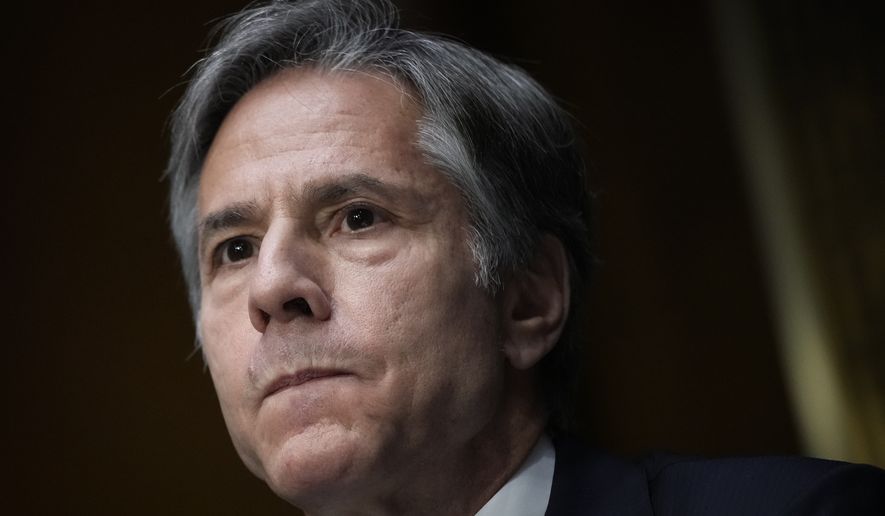The Biden administration is calling on the United Nations to embrace Taiwan‘s “participation” in the world body — a plea likely to outrage China, which denies the island democracy’s autonomy.
Secretary of State Antony Blinken issued a statement Tuesday praising Taiwan as a “democratic success story” and urging the international community to join the U.S. in “supporting Taiwan‘s robust, meaningful participation throughout the U.N. system.”
Mr. Blinken said the longstanding “one China” U.S. policy of acknowledging Beijing‘s sovereignty over Taiwan has not changed.
However, his rhetorical support for Taiwan at the U.N., signals an increased willingness on the part of the administration to back Taiwanese autonomy.
Friction between the U.S. and China over Taiwan has been growing, with surging Chinese military incursions into Taiwanese airspace and reports of American forces training Taiwanese forces.
Chinese officials have signaled desires for China to fully absorb Taiwan, and U.S. officials have warned that Beijing may be moving toward attempting to use force to achieve that end.
A Reuters report this week noted that Taiwan held the Chinese U.N. seat until Oct. 25, 1971, when it was voted out as representative of the country in favor of mainland China, known as the People’s Republic of China.
Contemporary China-Taiwan tensions have spilled onto the U.N. stage in recent years, with many suspecting that Beijing is using economic leverage over other member nations to block Taiwanese officials from participating in U.N. summits, agencies and initiatives.
Mr. Blinken stopped short of citing such allegations in his statement Tuesday but openly lamented that Taiwan has recently been blocked from contributing to U.N. efforts.
“Despite the tens of millions of passengers traveling annually through its airports, Taiwan was not represented at the International Civil Aviation Organization [ICAO] triennial assembly,” the secretary of state said. “Although we have much to learn from Taiwan‘s world-class response to the COVID-19 pandemic, Taiwan was not at the World Health Assembly.
“Members of civil society from around the world engage every day in activities at the U.N., but Taiwan‘s scientists, technical experts, business persons, artists, educators, students, human rights advocates, and others are blocked from entry and participating in these activities simply because of the passports they hold,” he said.
Taiwan is a model of “transparency, respect for human rights, and the rule of law — values that align with those of the United Nations,” Mr. Blinken added. “Taiwan is critical to the global high-tech economy and a hub of travel, culture, and education. We are among the many U.N. member states who view Taiwan as a valued partner and trusted friend.
“Taiwan‘s exclusion undermines the important work of the U.N. and its related bodies, all of which stand to benefit greatly from its contributions,” he said. “We need to harness the contributions of all stakeholders toward solving our shared challenges. That is why we encourage all U.N. Member States to join us in supporting Taiwan‘s robust, meaningful participation throughout the U.N. system and in the international community, consistent with our ‘one China‘ policy.”
Correction: A previous version of this article incorrectly stated the official U.S. government position regarding China‘s relationship with Taiwan. The story has been corrected to reflect that the U.S. government acknowledges China‘s claims to sovereignty over Taiwan, but does not officially recognize Beijing‘s position.
• Guy Taylor can be reached at gtaylor@washingtontimes.com.




Please read our comment policy before commenting.